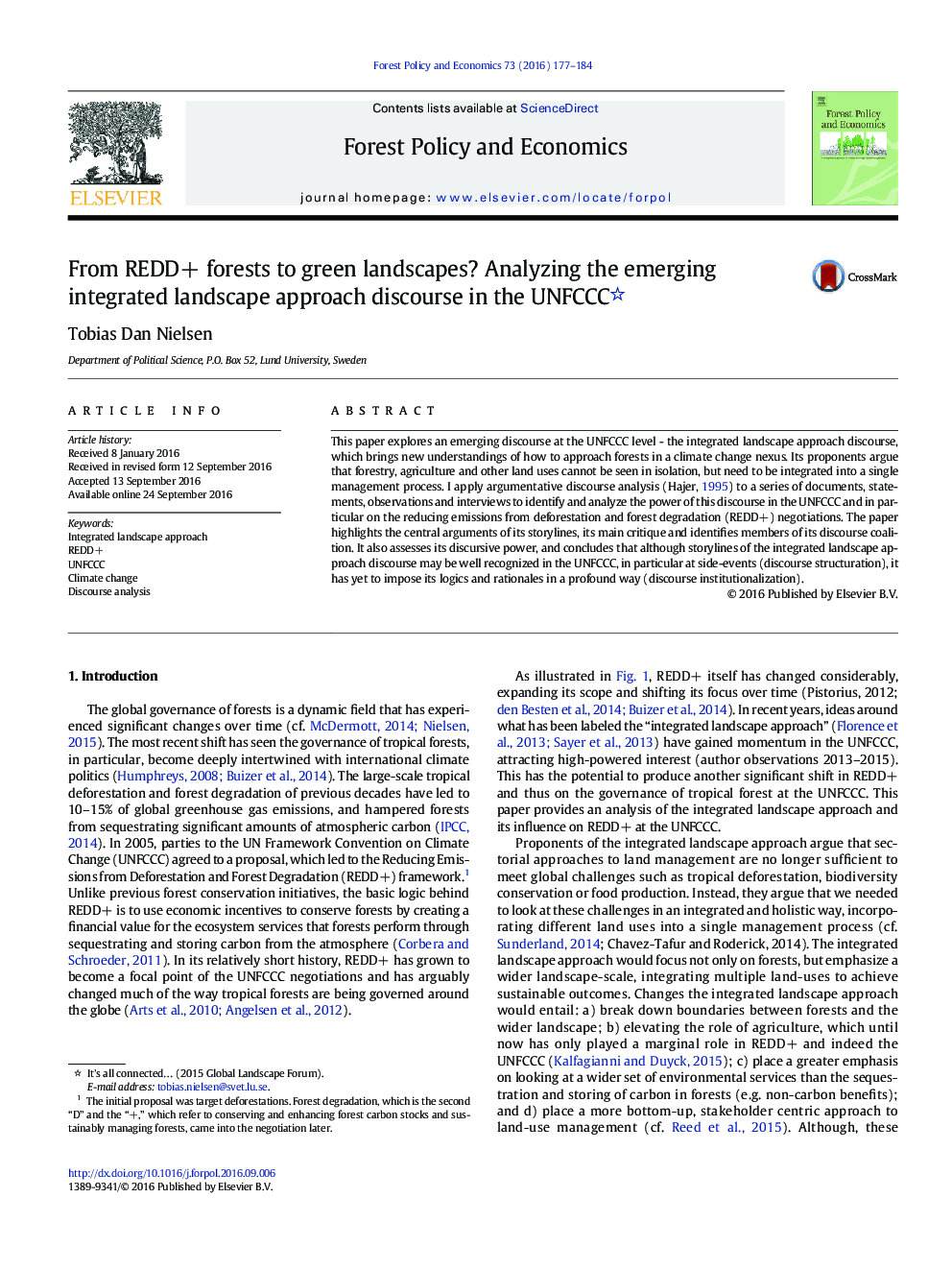| Article ID | Journal | Published Year | Pages | File Type |
|---|---|---|---|---|
| 6459843 | Forest Policy and Economics | 2016 | 8 Pages |
â¢The integrated landscape approach is an emerging discourse at the UNFCCC.â¢I map its key storylines, the key actors promoting them, and its main critique.â¢I argue that it has gained credibility and legitimacy (discourse structuration).â¢But not yet lead to changes in the negotiation text (discourse institutionalization)
This paper explores an emerging discourse at the UNFCCC level - the integrated landscape approach discourse, which brings new understandings of how to approach forests in a climate change nexus. Its proponents argue that forestry, agriculture and other land uses cannot be seen in isolation, but need to be integrated into a single management process. I apply argumentative discourse analysis (Hajer, 1995) to a series of documents, statements, observations and interviews to identify and analyze the power of this discourse in the UNFCCC and in particular on the reducing emissions from deforestation and forest degradation (REDD+) negotiations. The paper highlights the central arguments of its storylines, its main critique and identifies members of its discourse coalition. It also assesses its discursive power, and concludes that although storylines of the integrated landscape approach discourse may be well recognized in the UNFCCC, in particular at side-events (discourse structuration), it has yet to impose its logics and rationales in a profound way (discourse institutionalization).
